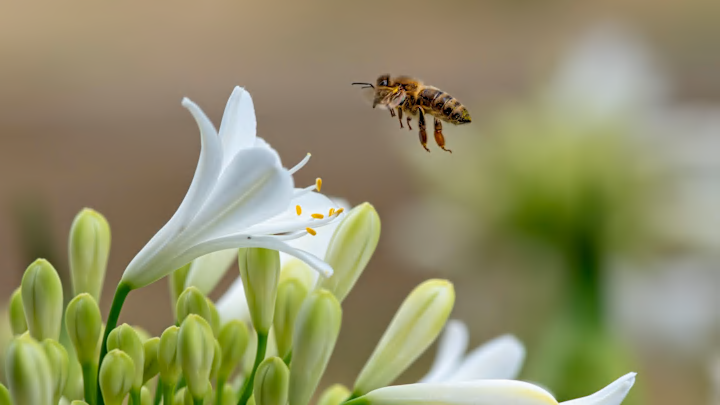Aside from providing jobs and helping us catch serial killers, bees help the world in many ways. One of their biggest contributions to society is plant pollination, which sustains the food chain. Life would come to a screeching halt without the insects. Unfortunately, research shows that air pollution is making it harder for bees to find flowers, as Knowable Magazine reports.
A team of researchers from the UK conducted a study on bee behavior during the summers of 2018 and 2019. They looked at two areas of black mustard plants: one where plots were regularly exposed to ozone and nitrogen oxides, and another with unpolluted air. Over the course of the study, they documented every bee and other insect that tried to interact with the pollen or nectar of black mustard plants.
The scientists found that the pollutant-choked plants attracted up to 70 percent fewer insects compared to the pollution-free crops. The actual flowers of the plants fared even worse, receiving 90 percent fewer visits. Their findings imply that bugs generally find it challenging to locate plants in toxic air.
Bees can find flowers thanks in part to their complex olfactory systems—the parts of the body used for smell. The insects have uniquely shaped structures on their antennae called odorant receptors, allowing them to detect chemical compounds in scents. When a flower’s scent molecule aligns with a receptor, the bee’s brain gets a signal to go find it. However, when air pollutants mix with flower scents, toxins alter the plant scent molecules, confusing the bug and prolonging the pollination and foraging processes.
Scientists’ concerns about bees are not new. Bee populations have suffered significant losses in the United States and Europe. In the U.S. alone, beekeepers have lost about 30 percent of their colonies yearly since 2006. Factors like climate change, parasites, pesticides, and loss of flora due to habitat destruction and increased land use are only some of the causes.
All hope isn’t lost. Some organizations and lawmakers are doing their part to protect bees. For example, the European Union partially banned three pesticides that affect bee species. And as part of its post-2020 biodiversity framework, the United Nations aims to reduce global pesticide use by at least two thirds by 2030.
Read More About Insects:
